Ever wondered if a simple question could save you thousands in roof repairs—or spare you from roofing scams altogether? When it comes to questions to ask your roofing contractor in Tampa Bay, knowing the right things to ask is your home’s first, best defense. Your roof is one of your biggest investments—protecting your property, your family, and your peace of mind. So before you hire any roofing company, read on to discover exactly what to ask, how to spot warning signs, and where to find the right answers for a secure roofing project.
Start with the Right Questions: Protecting Your Tampa Bay Home
"Your home is your fortress—asking the right questions is your first line of defense."
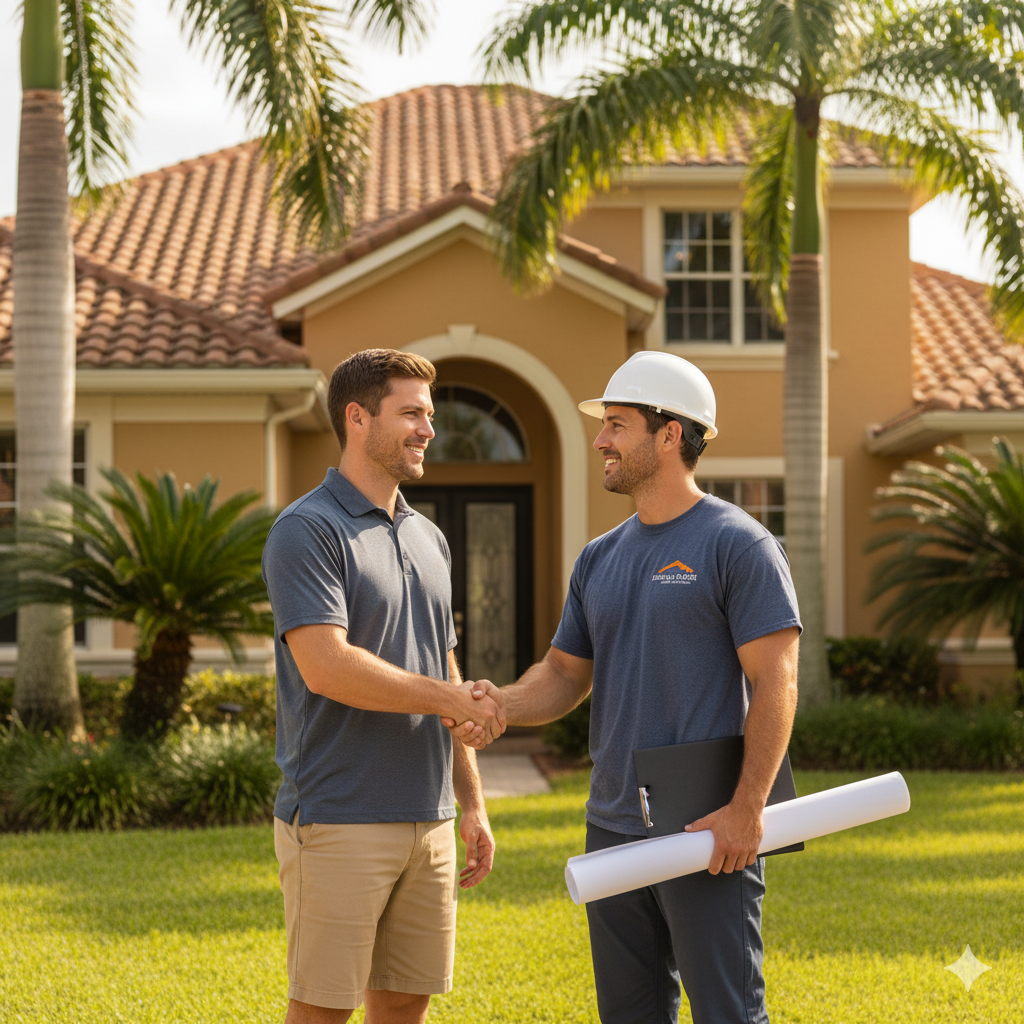
Choosing a roofing contractor in Tampa Bay can feel like navigating a maze of options, prices, and promises. But the truth is, what you ask before signing a contract can make all the difference. A reputable roofing company will welcome your questions and provide transparent, honest answers that help keep your home—and your finances—safe. Protect your investment by making sure no stone is left unturned before your next roof installation or repair. Let’s break down the essential questions to ask your roofing contractor in Tampa Bay so you can compare, vet, and confidently hire the right partner for your roofing project.
What You’ll Learn Before Hiring a Roofing Contractor in Tampa Bay
Why specific, targeted questions matter when hiring a roofing company in Tampa Bay
The impact of new Florida roofing rules on your next roof installation
How to spot red flags and avoid roofing scams
How to compare roofing contractors for best results
Essential documentation homeowners must request
Table: Quick Reference to 26 Questions to Ask Your Roofing Contractor in Tampa Bay
Key Question |
Purpose/Red Flag |
Notes |
|---|---|---|
1. Are you licensed as a roofing contractor? |
Confirms legitimacy; unlicensed work is illegal |
Ask for specific license number and check online records |
2. Can you show proof of liability insurance and workers’ comp? |
Protects you from lawsuits; lack of insurance is a huge red flag |
Request copies; make sure policies are current |
3. Will you provide references from previous Tampa Bay projects? |
Independent proof of quality; refusal signals possible issues |
Contact at least three references |
4. What roofing systems do you recommend for Tampa Bay? |
Ensures proper material for climate; generic responses show lack of expertise |
Discuss options: shingles, tile, metal, flat roofs |
5. How do you handle permits and local regulations? |
Compliance is mandatory; ignoring permits is risky |
They should manage all local building code requirements |
6. Who supervises the roof installation? |
Onsite supervision ensures quality |
Get the supervisor’s name and contact details |
7. How will you protect my property during the project? |
Prevents landscape and home damage |
Look for clear debris management and safety plans |
8. What are your payment terms and down payment requirements? |
Prevents scams; large upfront payments are a warning |
Never pay in full before work begins |
9. How do you ensure quality customer service? |
Good communication prevents misunderstandings |
Ask about point of contact and updates |
10. What does your roofing warranty cover? |
Defines responsibility for issues; vague answers signal poor coverage |
Clarify manufacturer vs. labor/workmanship warranty details |
11-26. (See below for full rapid-fire list) |
Covers project details, materials, timelines, follow-up |
Ensures no surprises after the job starts |
1. Are You Properly Licensed as a Roofing Contractor in Tampa Bay?
Start every conversation with your potential roofing contractor by asking about their Florida roofing license. A valid license isn’t just a formality—it’s your proof that the roofing company complies with state and local laws, stays up-to-date on building codes, and operates with the required expertise for your roof installation or repair. If a contractor hesitates or can’t provide their license number, that’s a major red flag.
Unlicensed roofing contractors expose homeowners to legal risks, insurance issues, and unpermitted work—a nightmare scenario if you ever need to sell your house or make an insurance claim after roof damage. In Tampa Bay, contractors should be able to show you not only a state license, but sometimes a county registration, especially if your community has stricter requirements. Verifying this information is an essential step in ensuring a successful and legal roofing project.
Why Working with a Licensed Roofing Company Matters
A licensed roofing company protects you in multiple ways. They are required to meet local building codes and standards, giving you confidence that your roof replacement or roof repair will hold up to the severe weather often experienced in Tampa Bay. Additionally, licensed contractors have usually gone through extra training and background checks, offering more peace of mind during all stages of the roofing project.
Without a license, you have little legal recourse if things go wrong. A license number is easily verified online, so always check the number your contractor provides. Legitimate, quality-driven roofing companies are happy to show you their credentials—if they’re not, your search for a trusted partner should continue elsewhere.
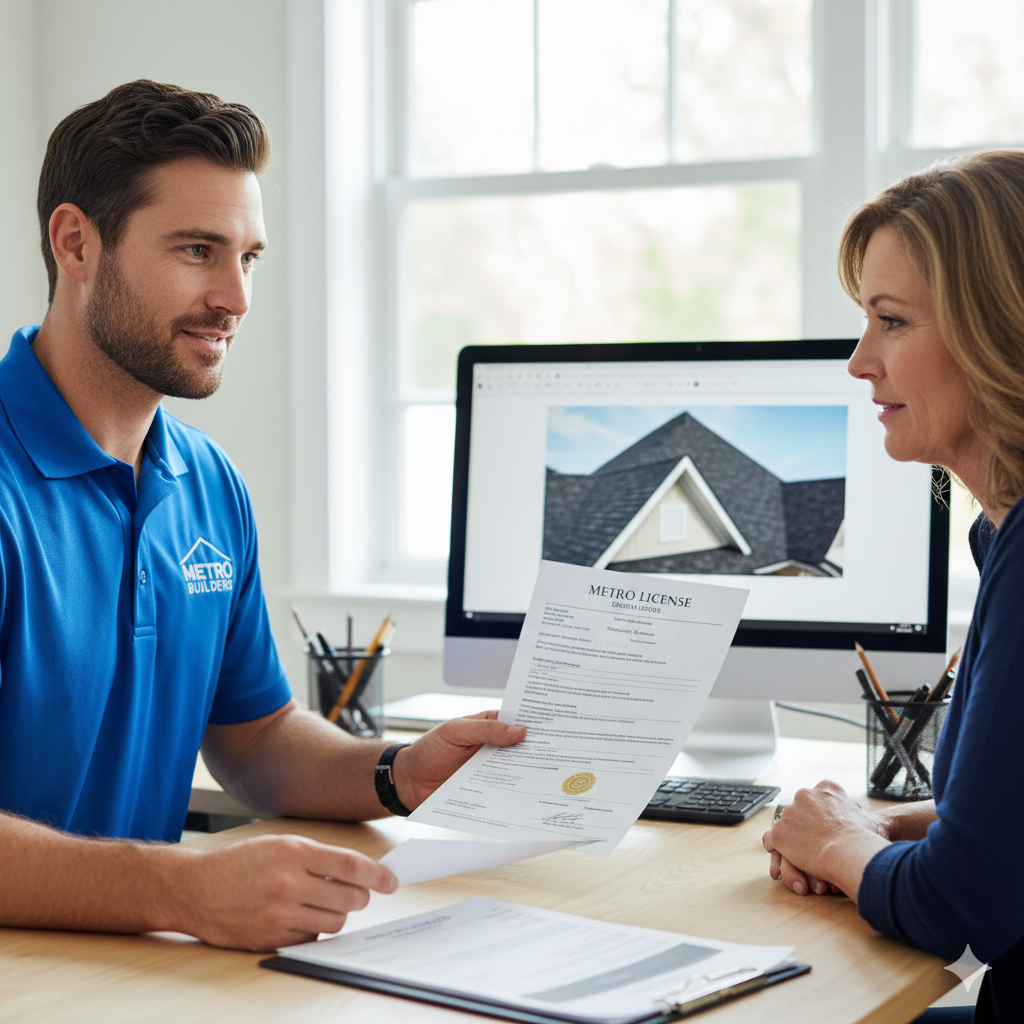
2. Can You Provide Proof of Liability Insurance and Workers’ Compensation?
One of the most important questions to ask your roofing contractor in Tampa Bay is about insurance. Roof work is risky, and accidents can happen. Confirm that your contractor carries active liability insurance and workers’ compensation coverage. This protects both the workers and yourself from costly lawsuits or medical bills if someone gets hurt while working on your property.
Ask to see up-to-date certificates and verify they’re current and match the company’s name. Trustworthy contractors will provide this without delay. Avoid any company that hesitates—working with uninsured roofers could leave you paying the price for an accident or property damage that isn’t your fault.
Checking Roofing Contractor Documentation for Tampa Bay Homeowners
You can request certificates or call the insurance provider to confirm coverage is valid for the duration of your roofing project. Some policies may exclude certain types of roof repair or specialty work, so ensure everything you’re getting done is listed in the policy. In Tampa Bay, where storms and accidents are not uncommon, this paperwork offers invaluable protection and peace of mind.
Never let anyone start roofing work on your home until you’ve confirmed every insurance document is current and genuine. This simple step is one of your best defenses against liability and loss during your roof replacement or installation.
3. Will You Provide References from Other Tampa Bay Roofing Projects?
A cornerstone of trustworthy business, asking for references from recent Tampa Bay roofing projects gives you unfiltered insight into a contractor’s reliability, workmanship, and customer service. Don’t just look at online reviews—speak with past clients directly.
Ask previous customers about their experience, how the contractor handled unexpected issues, and whether the project stayed on time and within budget. Feedback from local homeowners is one of your best guides in finding a reputable roofing company that delivers quality roof installation and repair.
How to Vet a Roofing Company Through References
Ask your contractor for at least three references from jobs completed within the last year. Reputable roofing contractors are always willing to connect you with happy customers. Use this opportunity to ask if the workers were professional, if problems were resolved quickly, and how the roofing materials have performed over time. If the company can’t provide references—or their references seem generic or non-local—consider this a warning to continue your search.
Taking this step not only builds your confidence but ensures you get real, homeowner-tested feedback before moving forward.
4. What Roofing System Options Do You Recommend for the Tampa Bay Climate?
A qualified contractor should tailor their recommendations based on Tampa Bay’s hot, humid climate and severe storm risks. Not every roofing system is suitable for Florida’s weather extremes. Whether you’re considering shingles, tiles, metal, or flat roofing, your contractor should clearly explain why each option could (or could not) work for your home.
Ask them to compare durability, energy efficiency, and how each choice handles the summer heat, heavy rain, and salt air exposure common in Tampa Bay. A contractor providing generic answers may lack true local expertise—insist on specific, climate-tested solutions for your property.
Comparing the Most Reliable Roofing Systems with Tampa Bay Weather in Mind
Popular options for the region include:
Shingle: Affordable, widely available, and offer decent protection if high-quality products are used.
Tile: Highly durable and great for resisting wind and rain, but heavier and sometimes costlier.
Metal: Excellent for reflecting heat and surviving high winds; increasingly popular for Florida homes.
Flat roof options: Best for certain architectural styles and commercial properties; must be properly waterproofed.
roofing materialsroofing company
5. How Does Your Roofing Company Handle Permits and Local Regulations?
Your roofing contractor should oversee all permits and ensure completion of the work in accordance with the most recent building codes. In Tampa Bay, failing to obtain the proper permits can result in costly fines, delays, or even forced removal of a newly installed roof.
The right contractor won’t cut corners—they know local laws and will take full responsibility for documenting and following all required guidelines from start to finish. Avoid anyone telling you permits aren’t necessary; that’s a sure sign of inexperience or intent to operate outside the law.
Understanding New Roofing Rules in Florida and Compliance Issues
Recent updates to Florida roofing laws have impacted how roofs are replaced and repaired in coastal areas. Your roofing company should be able to explain how the new regulations will affect your specific roof installation. Ask about timelines, required inspections, and whether there are any new restrictions on materials or procedures.
This conversation will not only protect you from legal setbacks but also guarantee your home remains insurable and compliant for years to come.
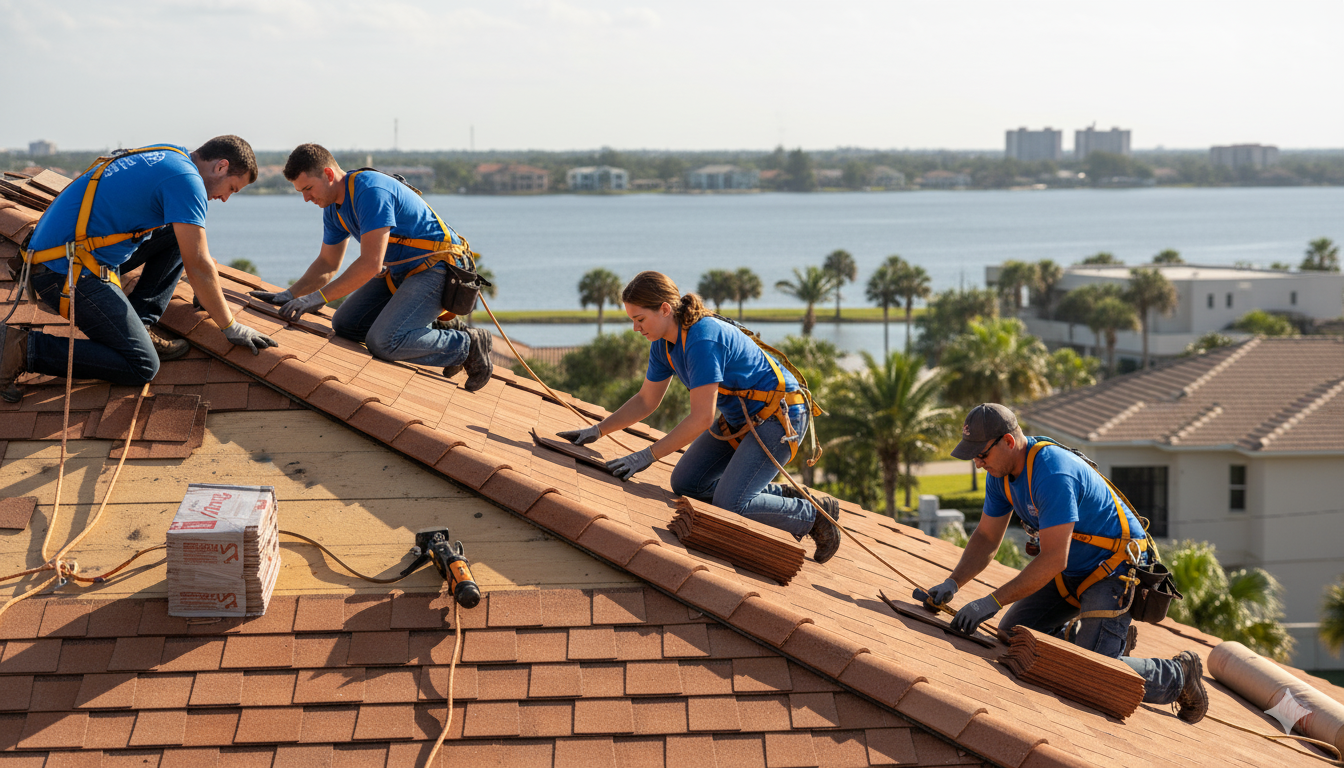
6. Who Will Supervise the Roof Installation Project?
Every roofing project needs a responsible, experienced supervisor on site to ensure proper installation, schedule management, and safety. Ask your roofing contractor if they provide a dedicated supervisor for your project and what their qualifications are.
An absent or indifferent supervisor can cause problems, from missed details to miscommunications and costly errors. A reputable roofing company provides you with a point of contact on the jobsite for any concerns or changes that arise during installation.
The Importance of Onsite Management by Your Roofing Contractor
Quality oversight means your new roof meets manufacturer specs, warranty requirements, and building code standards. A dedicated site supervisor checks for quality at every stage, supports crew safety, and gives you peace of mind. Always clarify who will supervise, how often they’ll check in, and how you can reach them during your roof installation.
With the proper plan in place for supervision, you minimize risks and maximize the quality and longevity of your investment.
7. How Will You Protect My Property During the Project?
Roofing is messy and potentially destructive to landscaping, driveways, and nearby exterior features. Ask your contractor to explain their process for safeguarding your property—before any work begins.
The best companies use tarps, plywood, specialized equipment, and tight project management to avoid damage.
Roof Installation and Site Safety Best Practices
Landscaping protection: Cover all shrubs, flowers, and delicate surfaces before removing old roofing materials.
Debris management: Ensure all waste is promptly collected—dumpsters placed on plywood, daily cleanups, magnetic sweeps for nails.
Risk mitigation: Crews must follow OSHA safety rules to reduce risk to your family, pets, and property throughout the roofing installation.
These steps guarantee your home and yard look as good (or better) after the installation as they did before the project started.
8. What Are the Payment Terms and Does Your Roofing Contractor Require a Down Payment?
Clarify all payment expectations upfront. Many reputable contractors ask for a small deposit (10-20%), with the balance due upon completion. Avoid anyone demanding full payment or a large sum before the project starts—this is the most common sign of a scam or a contractor in financial trouble.
Get a written estimate outlining all expenses, timelines, and payment schedules. Make sure any potential financing options are clearly explained in the contract, and never pay cash without a receipt.
Spotting Red Flags: Payment and Contract Best Practices
Insist on transparency around expected costs, invoicing, and your rights to cancel or dispute any charges. If a contractor insists on immediate, large upfront payments or dodges questions about what’s included, look elsewhere. Protect your finances as carefully as you protect your roof.
A trustworthy roofing company will answer all payment-related questions with clarity, ensuring everyone is protected against misunderstandings.
9. How Does Your Roofing Company Ensure Quality Customer Service?
Excellent customer service defines the difference between a smooth experience and a headache. Ask your roofing company who your main point of contact will be during the project, and how often you’ll receive updates.
Prompt communication, detailed project updates, and a willingness to resolve issues or answer questions show a company puts its customers first.
The Role of Communication and Guarantees in a Successful Roofing Project
Project updates: Will you get daily progress reports, or only hear from the company when there’s a problem?
Point of contact: Is there a dedicated person for your questions and concerns, or do you deal with a phone tree?
Problem resolution: How will the company handle miscommunications, delays, or issues discovered during installation?
Review the company’s reputation for customer service and check how they handle complaints or warranty claims before you sign.
10. Can You Explain Your Roofing Warranty and What Is Covered?
Not all warranties are created equal! Ask your roofing company to provide written details for both their manufacturer’s and workmanship warranties. Find out exactly what is covered and how long each lasts.
A reputable contractor will explain the difference: the manufacturer’s warranty typically covers defects in roofing materials, while the workmanship warranty covers installation errors. Both are important for long-term protection.
Manufacturer vs. Workmanship Warranties for Roofing Systems
Make sure your warranty includes clear start and end dates, what situations are excluded, and how to file a claim in the event of an issue. Top companies even include inspections or minor maintenance as part of their service, increasing your peace of mind and the value of your investment.
A vague or verbal-only warranty is a major red flag—insist on full documentation.
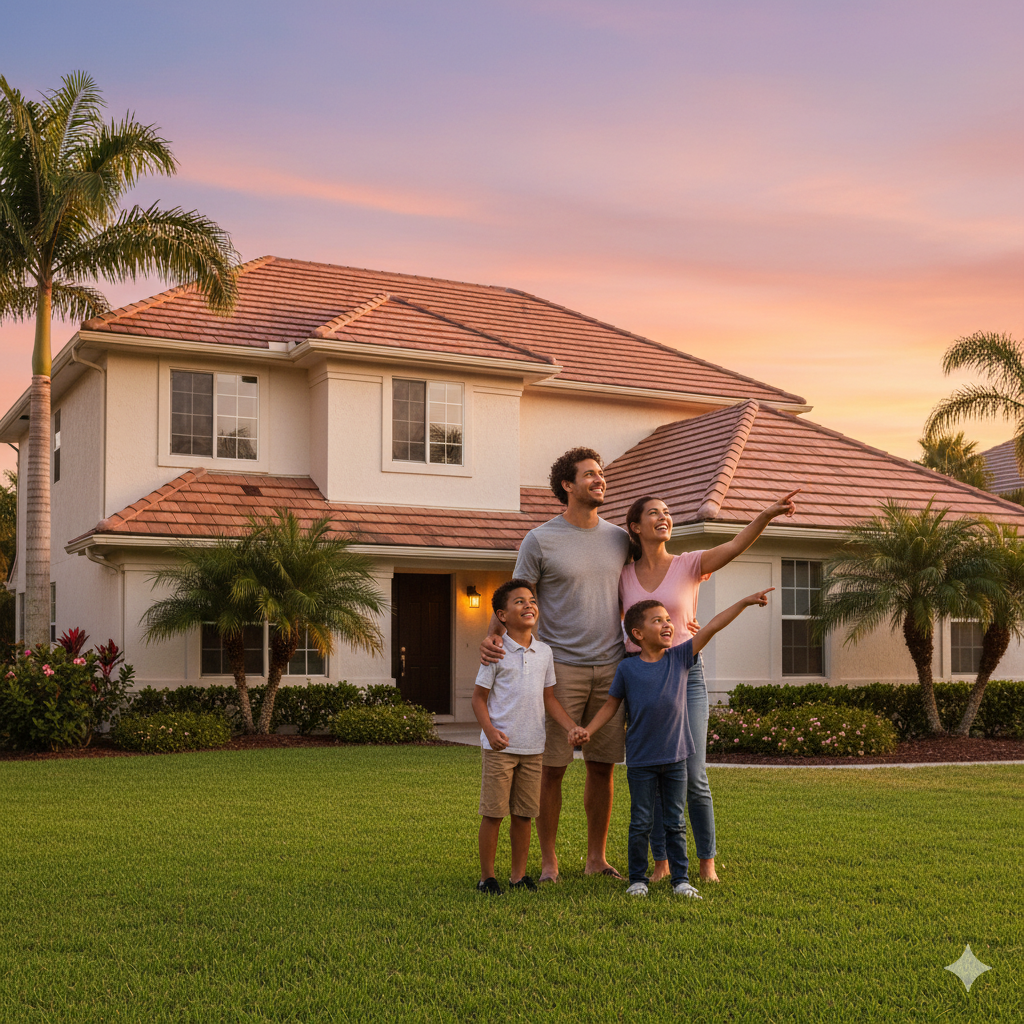
11-26: Rapid-Fire Questions to Further Vet Your Roofing Contractor
What brands of roofing materials do you recommend for Tampa Bay weather?
How long will the roof installation process take?
What is your projected start date and how soon can you begin?
Will you provide a written estimate and contract?
Do you remove the old roof or install over it?
Will you install drip edge/edge metal on all roof edges?
How will you handle weather delays?
What steps are taken if hidden damage is found during the roofing process?
Are there additional costs homeowners should expect?
How do you dispose of roofing debris?
Will there be a final inspection with the homeowner?
Do you use subcontractors or all in-house roofing employees?
Are your roofing crews background checked and insured?
How will gutters, vents, and flashing be handled?
What are my roofing options for energy efficiency or insurance savings?
Who should I call for follow-up repairs or warranty claims?
How do you handle issues found after roof installation?
Can you show proof of recent successful roofing projects in Tampa Bay?
Do you offer roof maintenance services post-installation?
Is your roofing contractor business in good standing with the BBB or state licensing board?
Can you explain the Florida-specific roofing laws affecting my project?
Will you provide lien waivers upon project completion?
How do you document project milestones for homeowners?
What sets your roofing company apart from competitors?

Before signing with anyone, take a moment to watch a reputable video guide to choosing a roofing contractor in Tampa Bay. Seeing these steps in action will help you spot common traps and avoid pitfalls that could jeopardize your roofing project.
People Also Ask: What questions should you ask a roofer?
Top Questions for Roofers in Tampa Bay—and Why They Matter
If you’re hiring a Tampa Bay roofing contractor, always ask about their license, insurance, warranties, experience with the local climate, and their process for handling permits and debris. Inquire about previous projects, how they manage unforeseen issues, and what their exact payment terms are. Each of these questions to ask your roofing contractor in Tampa Bay will reveal their trustworthiness, experience, and dedication to proper installation and customer service.
Don’t hesitate to ask for written proof and specific examples – a reputable roofing company will appreciate your thoroughness and see it as a sign you value quality and professionalism.
People Also Ask: What are the new rules for roofing in Florida?
Florida Roofing Laws Homeowners Must Know in 2024
Florida has recently tightened laws regarding roofing contractors to increase accountability and protect homeowners. New rules now mandate more stringent permitting, documentation, and limits on certain roof repairs and replacements without a permit. Some changes affect insurance claims, requiring specific assessments before covering a roof replacement or repair.
In Tampa Bay, ask your contractor how these new rules affect your specific job—particularly regarding timelines and permitted materials. Ensuring your roofing project complies with all updated laws reduces your risk of fines, insurance issues, or forced rework down the line.
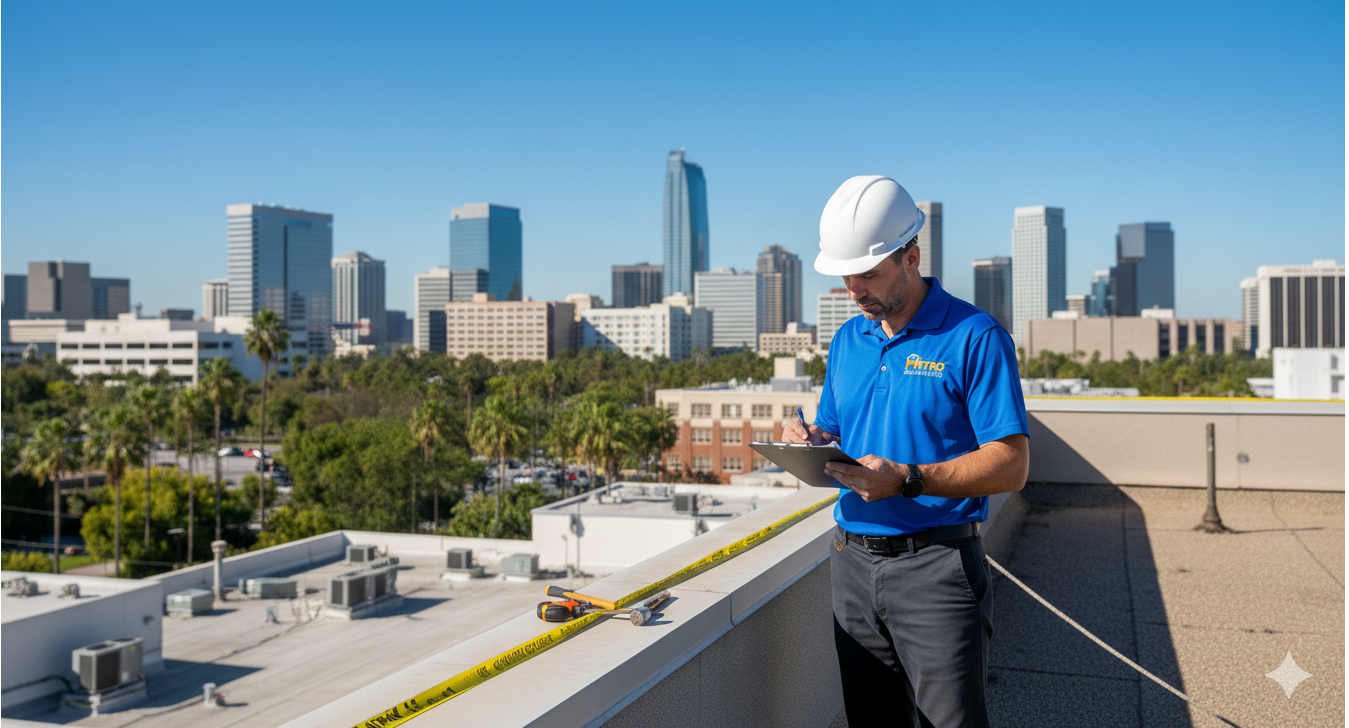
People Also Ask: How do you know if your roofing contractor is ripping you off?
Warning Signs: Protecting Yourself from Roofing Scams in Tampa Bay
Beware of Tampa Bay contractors who demand large upfront payments, avoid written contracts, or refuse to provide licensing and insurance details. Additional red flags include vague answers about timelines, lack of local references, or high-pressure sales tactics.
If the roofing company offers prices far below competitors, uses hard-to-trace subcontractors, or can’t explain their warranty, it’s time to walk away. Always get multiple estimates and compare not just price but the scope of work and included services before making a final decision.
People Also Ask: Is $30,000 too much for a roof?
Evaluating Roofing Costs in Tampa Bay: What’s a Fair Price?
Whether $30,000 is “too much” for a roof in Tampa Bay depends on your roof’s size, chosen materials, complexity, and required structural repairs. High-end materials such as tile or metal, or large roofs with custom features, will naturally cost more.
Get detailed, written estimates from at least three roofing companies and verify all specifications, including materials, labor, and timeline. Always look for justification for each line item in the quote. If unsure, consult with an independent expert or inspector to ensure you’re receiving fair and honest pricing for your specific roofing project.
FAQs: What Tampa Bay Homeowners Want to Know About Roofing Contractors
Frequently Asked Questions When Hiring a Roofing Contractor in Tampa Bay
-
Do I need multiple estimates before selecting a roofing company?
Yes! Always request at least three detailed estimates so you can compare services, materials, warranty coverage, and price. This helps you identify the market average and spot outliers that may signal potential scams or inferior work.
-
How do I verify a contractor’s insurance and licensing?
Ask for their license number and insurance certificates, then check with Florida’s Department of Business & Professional Regulation and call the insurance providers to confirm policies are active and valid before any work begins.
-
Can you negotiate price with a roofing contractor?
Yes, but do so respectfully and with an understanding of what is included versus what isn’t. Some flexibility may exist, particularly around upgrades, financing options, or timeframes—but never sacrifice quality to save a buck on your roof.
Key Takeaways: Make Every Question Count When Hiring a Roofing Contractor in Tampa Bay
Always verify credentials, insurance, and references.
Understand your warranty and contractual rights.
Insist on clarity and written documentation.
Protect your investment with due diligence.
Ready to Ask the Right Questions?
"If you have questions about your roof or about how we can serve you, call us at 813-725-2225."
Don’t leave your home to chance—ask, verify, and hire with confidence for every Tampa Bay roofing project.
 Add Row
Add Row  Add
Add 



Write A Comment